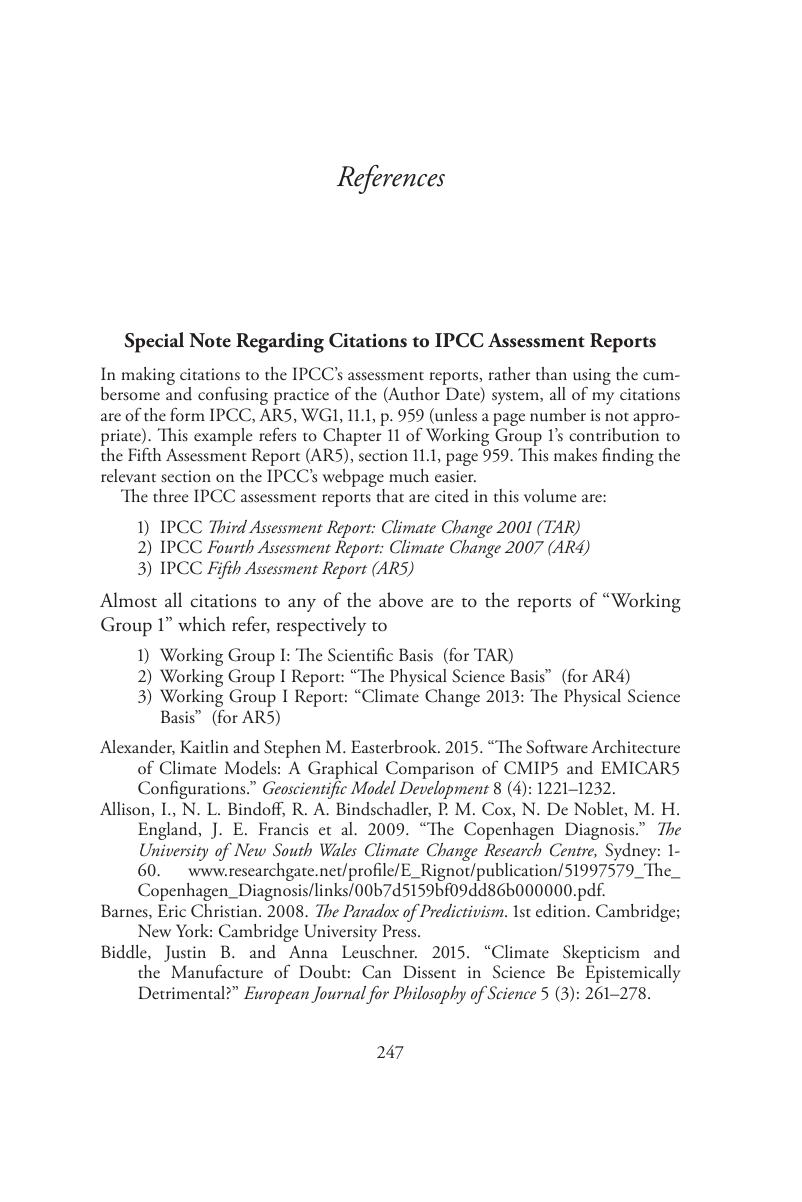Published online by Cambridge University Press: 19 April 2018

In making citations to the IPCC’s assessment reports, rather than using the cumbersome and confusing practice of the (Author Date) system, all of my citations are of the form IPCC, AR5, WG1, 11.1, p. 959 (unless a page number is not appropriate). This example refers to Chapter 11 of Working Group 1’s contribution to the Fifth Assessment Report (AR5), section 11.1, page 959. This makes finding the relevant section on the IPCC’s webpage much easier.
The three IPCC assessment reports that are cited in this volume are:
1) IPCC Third Assessment Report: Climate Change 2001 (TAR)
2) IPCC Fourth Assessment Report: Climate Change 2007 (AR4)
3) IPCC Fifth Assessment Report (AR5)
Almost all citations to any of the above are to the reports of “Working Group 1” which refer, respectively to
1) Working Group I: The Scientific Basis (for TAR)
2) Working Group I Report: “The Physical Science Basis” (for AR4)
3) Working Group I Report: “Climate Change 2013: The Physical Science Basis” (for AR5)
To save this book to your Kindle, first ensure no-reply@cambridge.org is added to your Approved Personal Document E-mail List under your Personal Document Settings on the Manage Your Content and Devices page of your Amazon account. Then enter the ‘name’ part of your Kindle email address below. Find out more about saving to your Kindle.
Note you can select to save to either the @free.kindle.com or @kindle.com variations. ‘@free.kindle.com’ emails are free but can only be saved to your device when it is connected to wi-fi. ‘@kindle.com’ emails can be delivered even when you are not connected to wi-fi, but note that service fees apply.
Find out more about the Kindle Personal Document Service.
To save content items to your account, please confirm that you agree to abide by our usage policies. If this is the first time you use this feature, you will be asked to authorise Cambridge Core to connect with your account. Find out more about saving content to Dropbox.
To save content items to your account, please confirm that you agree to abide by our usage policies. If this is the first time you use this feature, you will be asked to authorise Cambridge Core to connect with your account. Find out more about saving content to Google Drive.